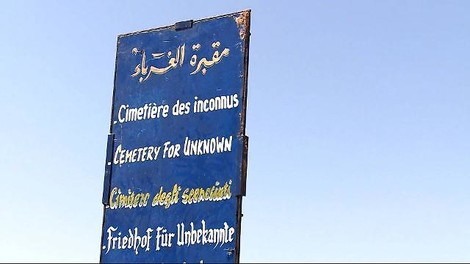Your podcast discovery platform
Curious minds select the most fascinating podcasts from around the world. Discover hand-piqd audio recommendations on your favorite topics.

piqer for: Boom and bust Global finds
I am a Dutch journalist, writer and photographer and cover topics such as human rights, poverty, migration, environmental issues, culture and business. I’m currently based in The Hague, The Netherlands, and frequently travel to other parts of the world. I have also lived in Tunisia, Egypt, Kuwait and Dubai.
My work has been published by Al Jazeera English, BBC, The Atlantic's CityLab, Vice, Deutsche Welle, Middle East Eye, The Sydney Morning Herald, and many Dutch and Belgian publications.
I hold an MA in Arabic Languages and Cultures from Radboud University Nijmegen and a post-Master degree in Journalism from Erasmus University Rotterdam. What I love most about my work is the opportunities I get to ask loads of questions. Email: [email protected]
Cemetery for unlucky strangers
This year 462 people have already died while trying to cross the Mediterranean Sea to start a new life in Europe (a total of 33,761 in the past 18 years). Most of these refugees and migrants took small smuggling boats between Libya and Italy. Some of the drowned wash ashore on Tunisian beaches.
In this video, an Al Jazeera reporter talks to Chamseddine Marzoug, a fisherman and volunteer at the Tunisian Red Crescent. He has buried around 400 drowned strangers at a cemetery in Southern Tunisia. The cemetery, a former garbage dump, looks messy. The graves are unmarked and there are no facilities for collecting DNA.
After my visit to this same cemetery about 1.5 years ago and my article about it for Al Jazeera, a large number of international and local media have covered this story in various languages. Despite all this interest and Marzoug's efforts to seek help from the international community, the cemetery is still in a bad shape and there is still no way to identify the bodies. In the meantime, the cemetery has started filling up and Marzoug and other volunteers are trying to raise money to buy another plot of land.
Right now, only one of the deceased is known by name: Rose-Marie, a 28-year-old Nigerian teacher, whose husband identified her. Marzoug would like to be able to test the people's DNA and have a room to keep people's belongings.
If their relatives come looking for them one day, they can find them and the things they have left behind.
Marzoug's sons recently migrated illegally to Europe. Knowing how dangerous it is to cross the sea, he would have stopped them had he known about their plans beforehand, he told the BBC last month.
At the same time, it's a bit of a dilemma. In Africa, including my home country here, there is not much hope for young people. They can't see a future.
He told Al Jazeera: "Maybe the work I'm doing for the dead helps my sons in some way. Maybe the spirits of the deceased prayed for them to reach Europe safely."
Stay up to date – with a newsletter from your channel on Global finds.
